Liminal Space
Exploring a spacious mindset and approach to creativity, composition & performance
There is something utterly compelling about wide-open, uncluttered space. Whether this is found in natural, outdoor landscapes and vistas, or experienced in eerie, empty, interior rooms or corridors, I often find myself being drawn back to these types of places and spaces, time and time again, both for the creative inspiration, and the emotional spaciousness and slowness I crave.
Perhaps it is a natural reaction to the busyness and always-on culture that pervades every aspect of twenty-first century life - to not have to consume, be advertised to, or to engage with ever-more attention-grabbing things on our screens. Perhaps it is something simpler; more visceral - a gut-reaction that need not be subject to analysis. Or perhaps I am just exhibiting classic creative-person tendencies: always seeking inspiration, requiring an “escape” from my current situation or circumstances (a dangerous mindset or position to find yourself in…more on this another time) to find “my muse”.
I wonder if it relates to the fact that in both of the environments I outline above, there is not anything required of me (apart, of course, from leaving it how I found it, unblemished, for the next viewer or inhabitant). I do not have to do something to be there and to exist there; I just need to get there, where I can simply be, rather than do, which is a state in which I am not often able to operate in, but - unsurprisingly - when ideas do tend to arrive. Away from the obvious important civic duties beholden on us (be a good person, pay your taxes, have your five-a-day, etc.) life as a creative and a creator, can quickly become all-consuming, in my case, not always being able to easily remember when I last sat down to play the piano, let alone compose something.
Tiredness is an easy excuse for many things, its causes so easily abused. Rather, I feel my desire for these encounters and experiences of space is better understood as a sense of weariness with the regular (physical) landscapes and interiors - whether natural or built - that make up and pervade our usual everyday lives.
There are two key challenges to contend with. One relates to the inherent dangers of escapism and the place-based Elsewhere™️ diagnosis we can easily prescribe for our creativity and inspiration (‘if only I was out walking in the mountains/on the beach, I’d have more ideas’). The second relates to the way in which liminal spaces are often seen, felt and understood to be eerie, uncomfortable and unsettling environments, framed as emptiness in a negative way, and - for many, worse still - highlights the feeling of being alone.
In his Atlantic article ‘The Eerie Comfort of Liminal Spaces’, Jake Pitre reflects on the transitional nature of liminal spaces, and how the online popularity of liminal spatial imagery ‘parallel[s] a growing sense of dissatisfaction and paralysis in the world: a feeling that although systems of labor [sic] and public health and politics are broken, ordinary people can do little to change society’s course’. He relates this to a sense of stasis, and that while ‘the pace of modern life seems impossible to keep up with, our lived reality does not change’.
Of course, recent years have taught us a lot about uncertainty and living in a state of transition and flux. Little has felt sure, steady or certain, and even as Pitre presupposes ‘liminal spaces can be both comforting and discomforting, nostalgic and unsettling, intimate and unnatural’, I would contend the natural tension at the heart of this juxtaposition between comfort and discomfort, is the very thing which I find engaging, enchanting, alluring even, in my quest to make music which feels most truly me: learning to trust and live with this tension, and rejecting the notion that they are incompatible.
My internal voice taunts me with the deep irony that “surely if I was so in need of this space, I would be better at recognising it, seeking it, and making the most of it.” Well, quite. I certainly don’t starve myself of it out of self-flagellatory spite, but perhaps I could be more aware of this juxtaposition in my own work and practice, in an attempt at redressing the balance.
Fundamentally, yes, I am a hypocrite. But I console myself with the knowledge that I have never tried to hide it.
In relation to my work as a composer, performer and musical artist, I have found an increasing sense of freedom by - gradually - coming to terms with the reality of what I am not, and crucially, contending with and learning to accept what I have not become. This shouldn’t be read or heard as negative…far from it. It is about finding liberation, primarily from our own unfair and unrealistic expectations.
It is years ago - decades even - when the ultra-minute possibility of becoming a concert pianist, jazz pioneer (and yes, even a greatly-misguided attempt at being a frontman of numerous musical projects) quickly dissolved into nothingness, yet I still spent so much of my life trying to be a version of these, trying to prove myself to others by being musically busy, playing as many notes as possible, and wasting a lot of energy in the process.
It takes time to get a measure of who you are, how you want to musically and creatively express yourself, and what you want to say through your art. Thankfully, it is not a task that can ever be finished - imagine feeling you had completed art! Instead, rather than sitting in my own disappointment and frustration, I am trying to better understand what I can do and be; what I am good at. It makes more sense, is more genuine and authentic, and it’s also a lot more fun.
I have committed to writing “spacious music”, which sounds dangerously like some form of Cageian-inspired group of new music dreamers in early-1960s New York, and I am here for it. How I’d love to have been around then. This is not a Movement (unless it takes off big, in which case you heard it here first). It isn’t minimalist per se (not to be confused with the somewhat erroneously-named minimalism), although I appreciate both. It isn’t “simple”, despite my belief there is a lot of merit in embracing simplicity. I don’t think it is fey, pastiche, bland, dumbing-down or muzak (come at me). Perhaps it would be better to outline what it is, rather than what it isn’t. However, to do so would go against the very point I hope I am moving seamlessly towards - that a state of liminality might not just be ok, but is actually fundamentally what we need.
A healthy dose of fluidity is required to achieve these liminal mental gymnastics which tend to go against so much of how we as creative people often think, or have become accustomed to thinking. Less right and wrong; less self-flagellation; less “now I’m composing / now I’m performing”. More conviction and trust; more self-acceptance, and more confidence to rest, live and exist in the in-between-ness where things are more grey than black and white.
Which, of course, is not just easier said than done: it is fundamentally challenging, scary and downright TENSE. Everyone knows Musicianship Class 101 majors on tension being a bad thing for anyone trying to perform music successfully. We all know about The Knot - that funny feeling in your stomach before you go on stage (let’s not be reductive enough to call it nervousness…it’s more than that).
Liminal spaces often do not offer or provide the clear answers we profess to desire. They are often transitory - corridors of conveyance, enabling us to move from one space to another; places to wait, holding people in a foyer or a lobby until the main performance space is fully prepared, or the doctor is ready to see us. We rarely visit these liminal spaces for what they offer in and of themselves, and why would we? They are not designed to function in this way.
But, how often we use them. Our workplace walkways; our houses’ hallway; the doctors’ waiting room; the car-park; even our cars themselves on our commute, shuttling daily back and forth over the same stretch of road. Perhaps these liminal spaces are not as uncomfortable and unsettling as we think - it is only when we start to think more closely about it that our minds convince us of something which is not true.
No one likes to feel tense. It is not an emotion or physical feeling that feels good. However, when there is less clutter - either in reality or in my head - and not somewhere else to get to or move to, these are often the times when I feel most engaged, alive and free. Dare I say it, creative even.
This week, I am going to seek out some liminal spaces, just for the sake of it. I’ll probably post them on Instagram, because it’s 2023 and that’s what we do. Maybe I’ll setup a Dreamy Liminal Spaces meme account, monetise it and earn more from it than my music career. I’d be interested to hear what you think, and what your favourite liminal spaces are. Take a photo and send it to me, and I’ll put them in digital scrapbook, so we can enjoy living in this tension together.


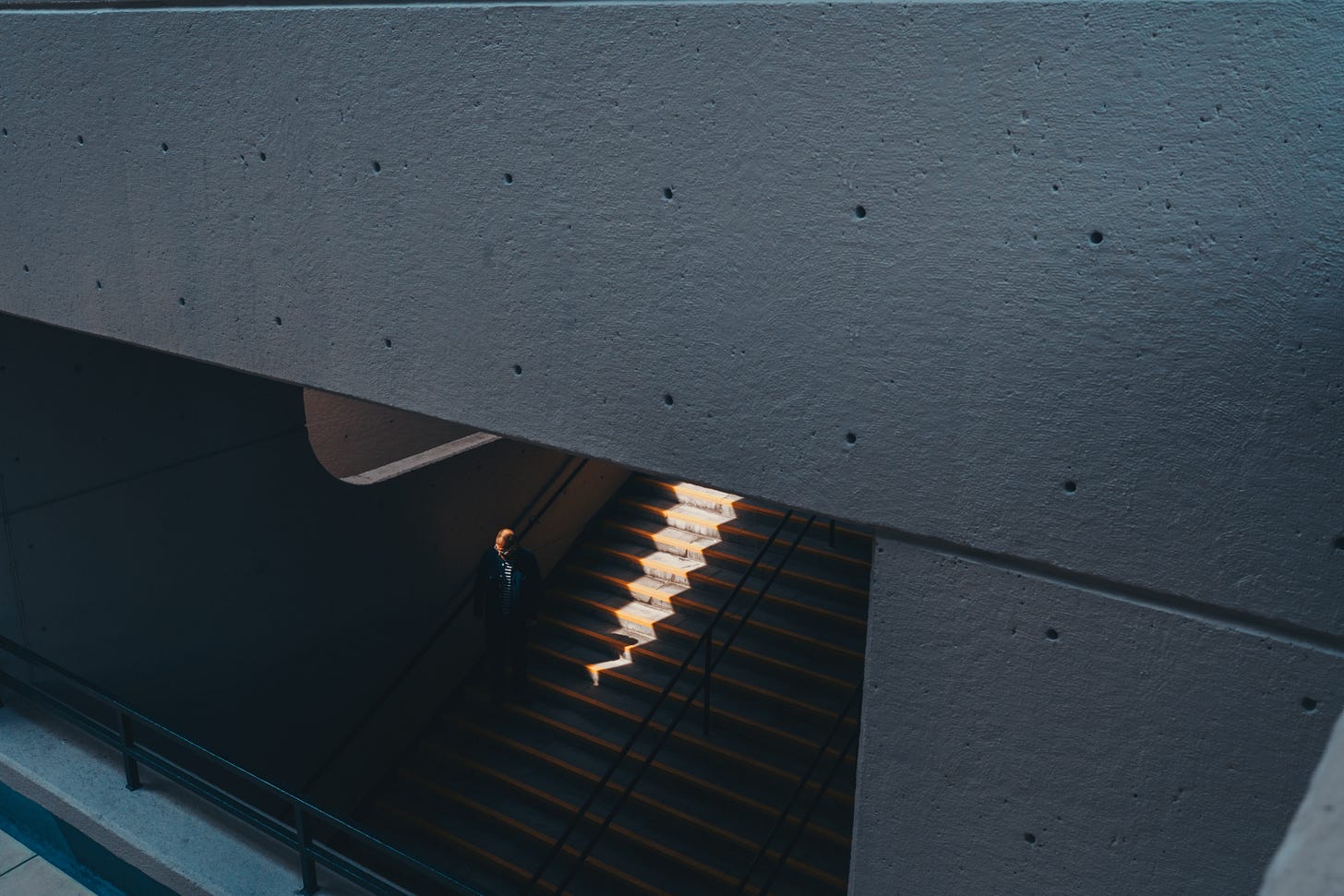
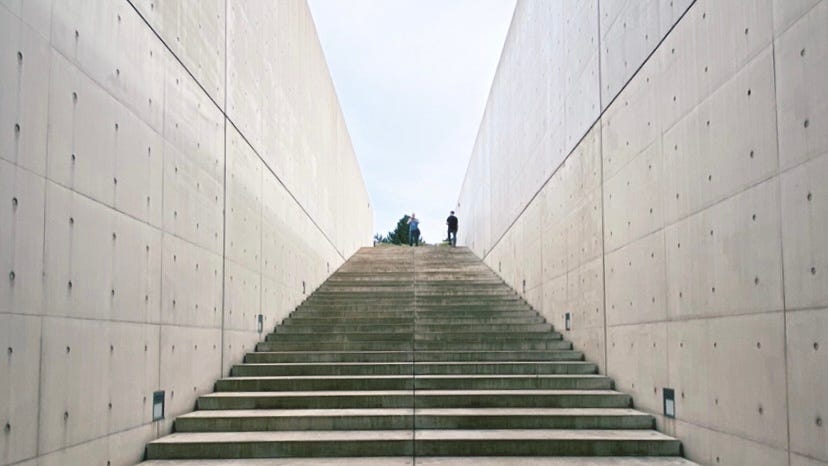
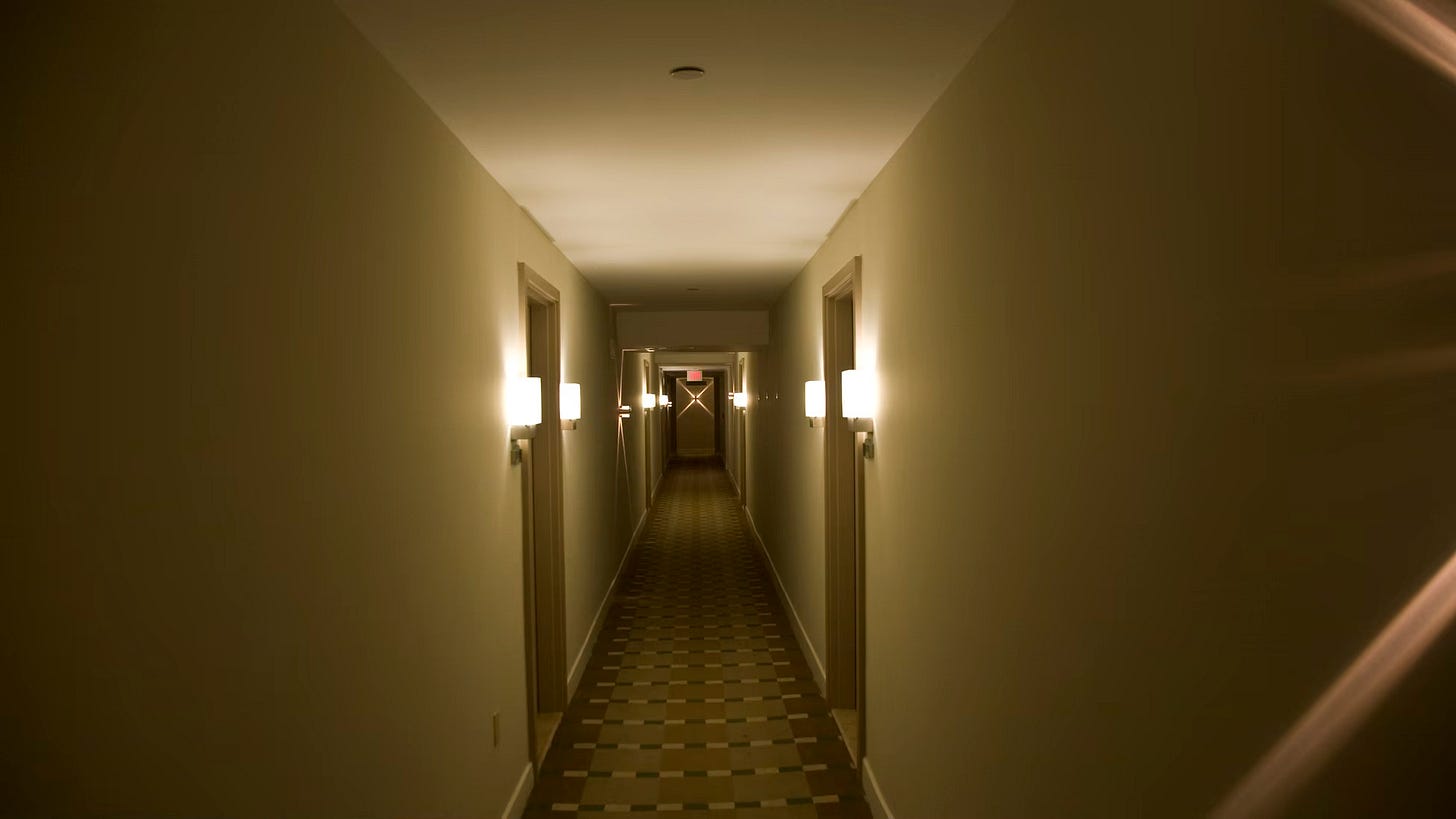
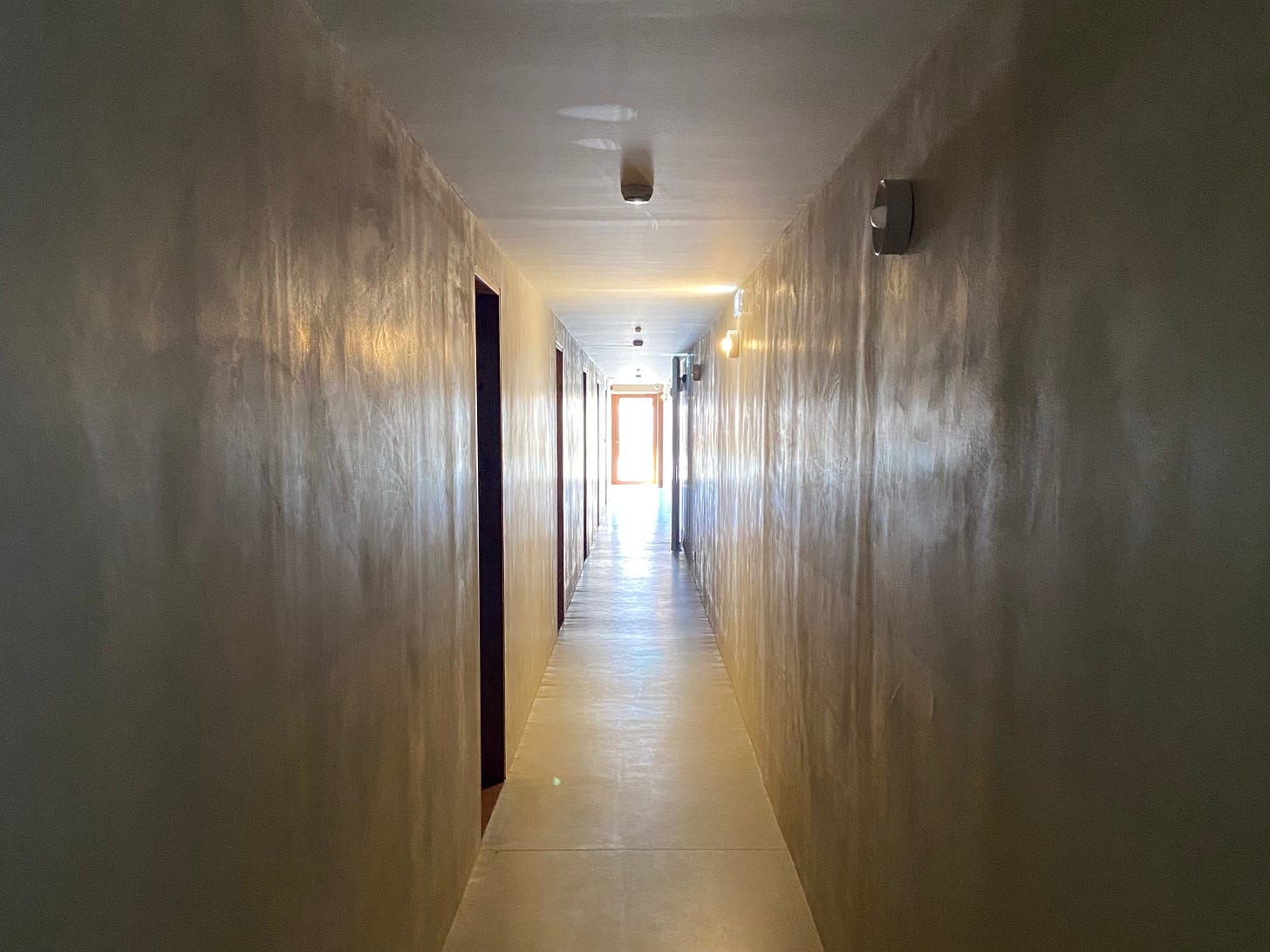
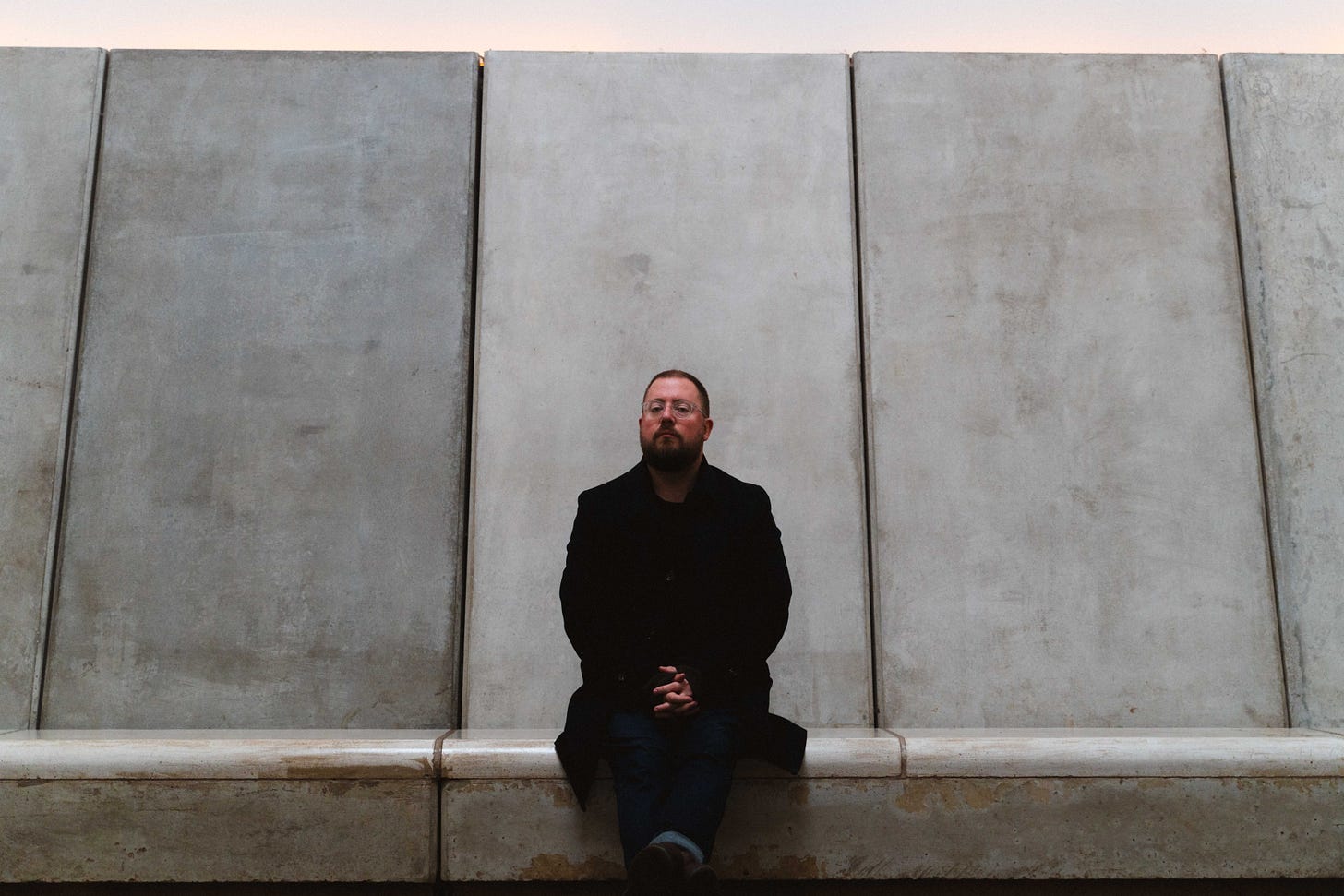
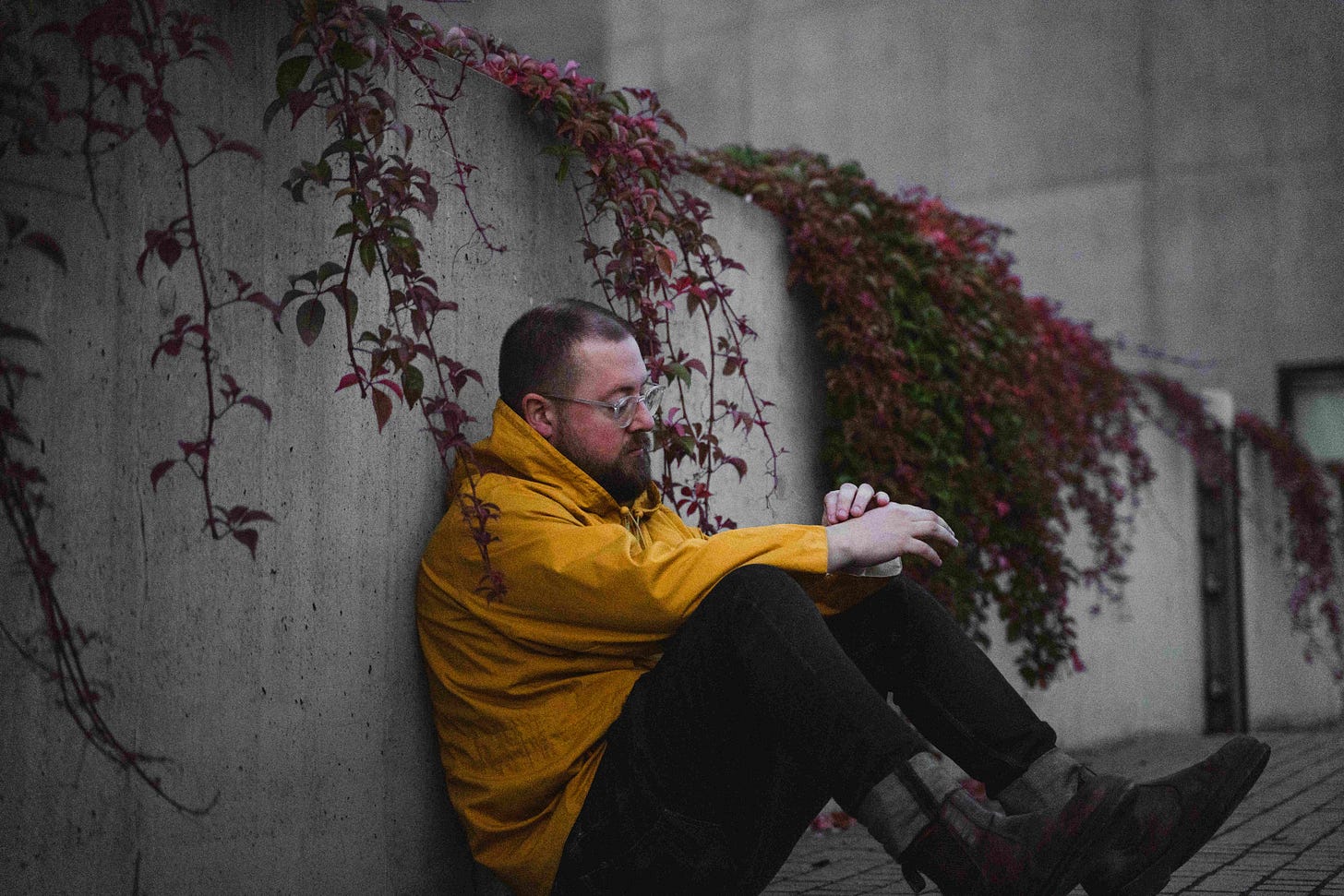
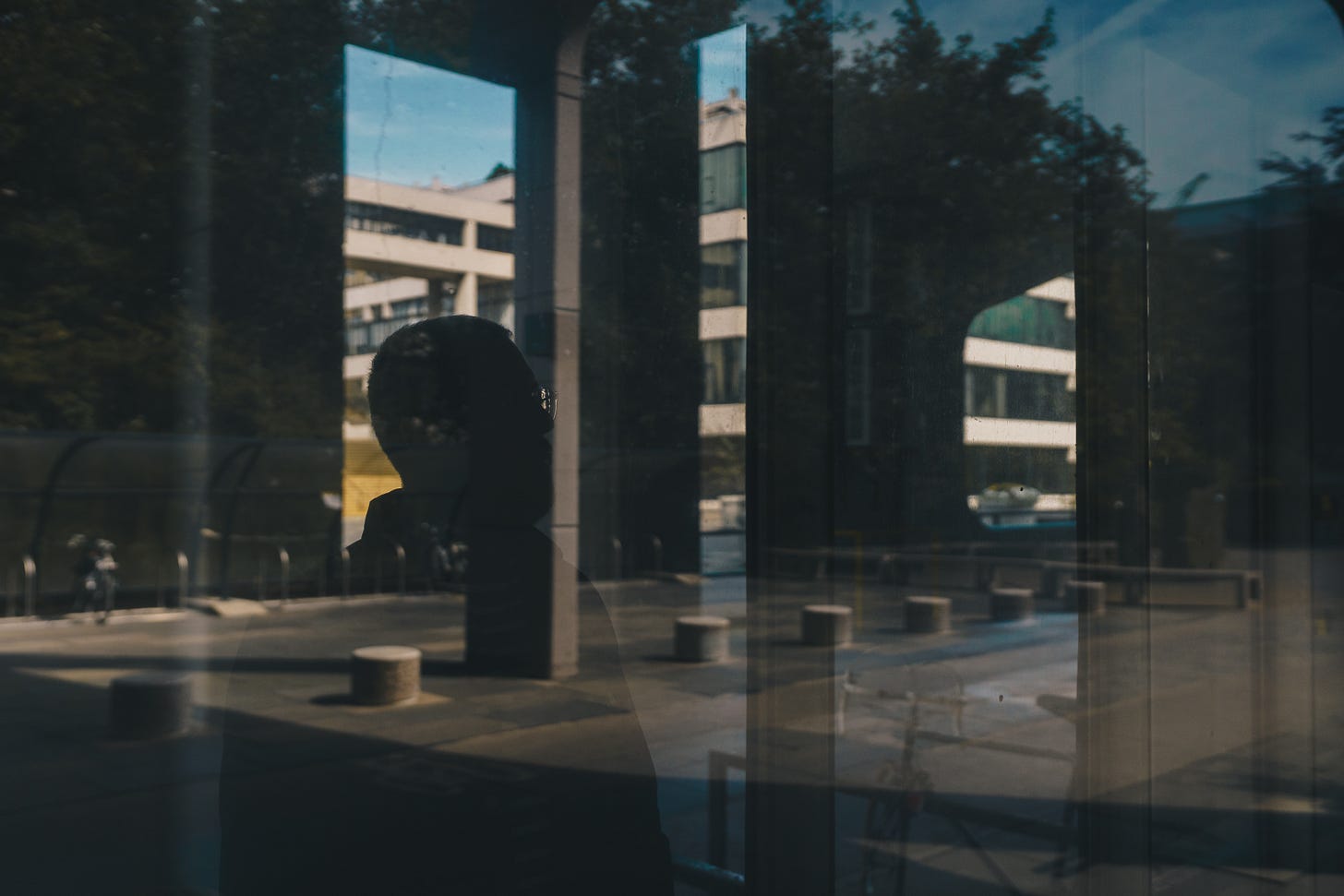

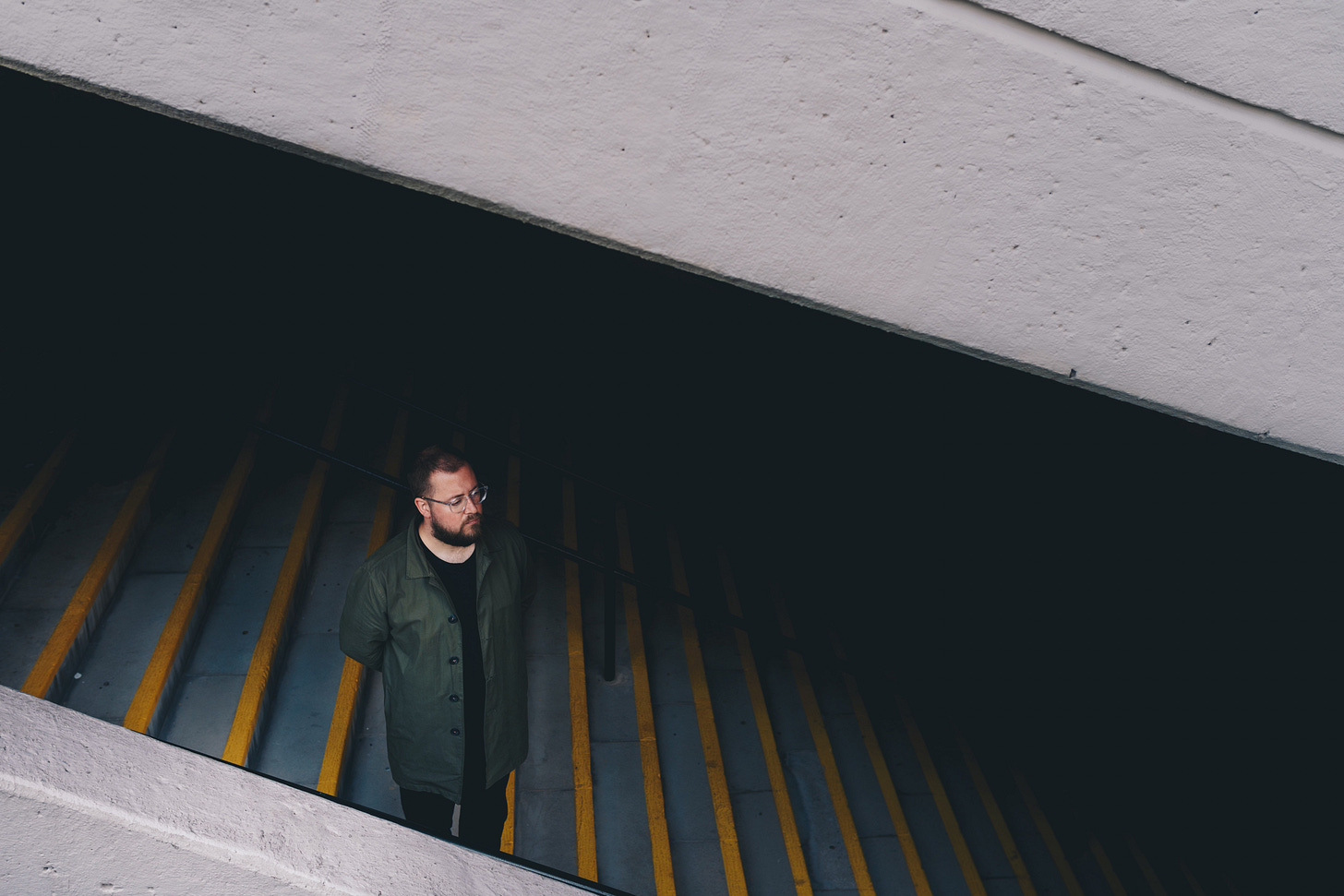
I've related to few things as strongly as:
"It is years ago - decades even - when the ultra-minute possibility of becoming a concert pianist, jazz pioneer (and yes, even a greatly-misguided attempt at being a frontman of numerous musical projects) quickly dissolved into nothingness, yet I still spent so much of my life trying to be a version of these, trying to prove myself to others by being musically busy, playing as many notes as possible, and wasting a lot of energy in the process.
It takes time to get a measure of who you are, how you want to musically and creatively express yourself, and what you want to say through your art. Thankfully, it is not a task that can ever be finished - imagine feeling you had completed art! Instead, rather than sitting in my own disappointment and frustration, I am trying to better understand what I can do and be; what I am good at. It makes more sense, is more genuine and authentic, and it’s also a lot more fun."
What a powerful passage.
As far as liminal spaces go, I really admire the scene of it between the images and pictures that get made online for it. Nobody channel on YouTube has this excellent playlist https://youtu.be/DqjWFZN82_A?si=v4jKQHrmrduMOEOg
When you find a liminal space out in the wild though, it really is something else now that the sensation has a name. There's a hallway in my office between the actual office and the bathrooms that gives me the same feelings as what I'd imagine walking through the backrooms feels like.